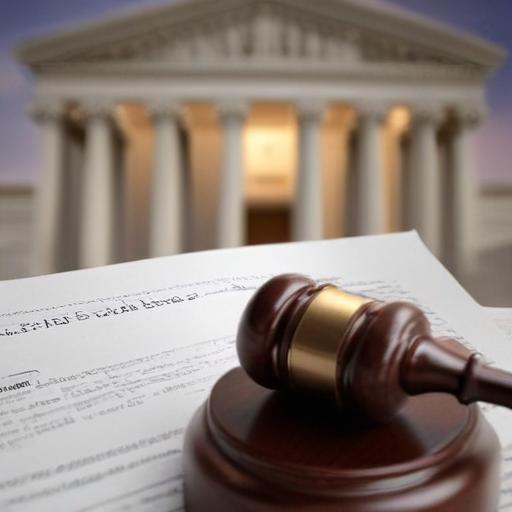The Supreme Court recently took a significant step to uphold civil rights protections by blocking a decision from the Eighth Circuit Court that threatened the Voting Rights Act, a landmark law crucial for preventing racial discrimination in elections. Last month, two Republican judges on the Eighth Circuit effectively invalidated key aspects of this law across seven states, prompting concerns about disenfranchisement.
In a brief order on Thursday, the Supreme Court confirmed that it remains illegal for states to disenfranchise voters based on race, although three justices—Clarence Thomas, Samuel Alito, and Neil Gorsuch—dissented without providing explanations for their votes. This dissent raises concerns about the future of civil rights protections, particularly in the context of the historic 15th Amendment, which aims to prohibit racial discrimination in voting.
The Voting Rights Act, enacted in 1965, was designed to address systemic inequalities in voter registration, especially in regions with a history of racist practices. It included provisions requiring states with discriminatory histories to receive federal approval for new election laws and allowed both private citizens and the United States to initiate lawsuits against state and local governments engaging in racial discrimination.
The recent attempts to diminish the effectiveness of this law echo previous rulings by the Supreme Court’s conservative majority. Notably, the Court’s ruling in Shelby County v. Holder (2013) dismantled the preclearance requirement, which had been essential in curbing discriminatory voting laws. Similarly, in Brnovich v. Democratic National Committee (2021), the Court imposed limits that undermined the law’s impact.
The stakes are high; if the Eighth Circuit’s ruling had stood, it might have severely restricted individuals’ ability to litigate against racial discrimination under both the Voting Rights Act and the 15th Amendment, significantly weakening protections afforded by these laws.
Fortunately, with the Supreme Court’s recent order, there is hope that the gains made in civil rights and voter protection can continue to be defended amid ongoing legal challenges. The unity shown by the Court’s Democratic justices—and the apparent dissent from only half of the Republican justices—offers a sign that crucial civil rights legislation may still find support amid rising tensions over election integrity. This decision exemplifies the importance of judicial safeguarding in preserving the foundations of democracy, ensuring that all voices are represented fairly in the electoral process.
